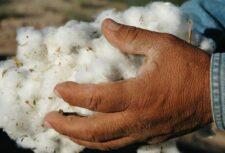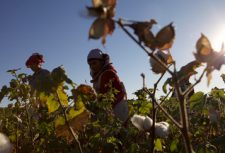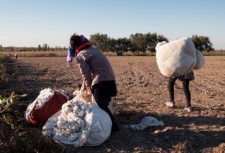Disclaimer: This article is more than 12 years old, and may not include the most up-to-date information or statistics. Please verify information with more recent sources as needed, and if you have any questions contact our Press Office.
29 July 2011
The European Commission has refused to consider ending trade preferences to Uzbekistan despite the hundreds of thousands of children forced to pick the country’s cotton harvest each autumn.
Uzbekistan is the third largest exporter of cotton in the world. Much of the cotton harvested by children in slavery makes its way to the European Union as garments produced in Bangladesh.
Anti-Slavery International wrote to Jose Manuel Barroso, President of the European Commission, on 11 April 2011 to remove trade preferences because of the ongoing use of forced labour in Uzbekistan. However, it is clear from a response on 26 July 2011 that the European Commission would rather support the modernisation of Uzbekistan’s cotton industry than tackle child slavery.
Andra Koke, Head of Trade and Development at the European Commission Directorate General of Trade, in a letter sent on behalf of the President of the European Commission, said: “The Commission attaches great importance to supporting agricultural reforms in Uzbekistan, in particular the restructuring of the Uzbek cotton sector and the introduction of mechanical cotton harvest, in order to support the implementation of labour standards.”
The letter explained that the European Commission would act, however, if the International Labour Organization (ILO), the international body responsible for global labour standards, was able to “clearly prove” “serious and systematic” violations of ILO conventions on forced and child labour.
The ILO has not been invited by Uzbekistan to monitor the cotton harvest but in June expressed its “serious concern at the insufficient political will and the lack of transparency of the (Uzbekistan) Government to address the issue of forced child labour in cotton harvesting”. An ILO Committee of Experts report earlier in the year also voiced “deep concern… about the systemic and persistent recourse to forced child labour in cotton production”.
Joanna Ewart-James, Anti-Slavery International’s Supply Chain Co-ordinator, said: “The European Commission is wilfully ignoring the reality of state-sponsored forced child labour in Uzbekistan. It is unacceptable to focus on modernisation, while rewarding Uzbekistan with trade preferences, when international law demands immediate action to stamp out slavery. By refusing to investigate the European Commission is putting cotton before children.”





